THE Covid-19 pandemic has put the brakes on many an industry, and hi-fi hasn’t been spared either. After the first “shockwave” early this year, though, some manufacturers recovered, others adapted, and yet others, emerged stronger. VPI Industries, one of the USA’s premier high-end turntable makers, had to hold back on new product plans earlier in the year but pitched in to help fight the pandemic. Now, it appears the company it set to move to its next phase, with the first ever phono cartridge bearing its name and a flagship turntable.
Resilience is part of the DNA of the company, which has had its share of setbacks since it was set up in 1978 by the husband-and-wife team of Harry and Sheila Weisfeld. It was also the year their first son, Jonathan, was born. VPI’s first products were a record weight and turntable base, then came the now-legendary HW-16 record-cleaning machine in 1981, followed by the iconic HW-19 turntable a couple of years later. Mathew, the Weisfeld’s second child, arrived in 1985.

As VPI was in the process of designing its first tonearm, tragedy struck – Jonathan was killed in a car accident, aged just 17. He had already been helping out in the factory and was the VPI heir-designate. The JMW Memorial tonearm, which he helped design, was a tribute to him – a percentage of each arm sold goes to a fund to further arts and music.
The TNT, Aries and Scout turntables were all part of VPI turntable lore in the 1990s and early 200s, before the Classic arrived in 2008. It heralded the next generation of VPI’s turntable design and marked the company’s 30th anniversary.
Again, tragedy struck when Sheila, viewed by many as VPI’s heart and soul, succumbed to cancer in 2012. This time, Mat, who had embarked on a career as an educator (high-school teacher, college professor and martial arts instructor), stepped in to gradually take over VPI’s rein and allow Harry to step back and focus on design.
Mat has since then widened VPI’s horizons, using social media extensively to expand the company’s reach, and rationalising and growing the product range.
Forty-odd years on, VPI is still wholly family-owned and makes all its products in Cliffwood, New Jersey. Mat, who has two children (one just born a few weeks ago), is now president of VPI. He tells us how the company has coped with the pandemic and looks ahead.

Obviously, this year has been trying for many businesses and markets around the world. What has Covid-19’s impact been on VPI? Have you discontinued any product because of this?
Covid-19 really sent this year on a total tailspin. We started this year with a solid production plan and projected launch dates for new products. In February, the day they announced Munich was cancelled, we had a dealer training weekend event where we showcased all new potential products. We worked with the dealers to make sure they understood what was to come and had the dialogue on how to appropriately bring these items to market. Shortly thereafter, the world closed! New Jersey was on lockdown and one by one, many of our suppliers and dealer closed in some cases for good. All of our projects went on hold as a number of suppliers were no longer available. Fortunately, we were able to maintain the existing VPI product line and were able to continue producing. VPI was identified as an “essential” facility and we proved that by shifting production to hand sanitisers, face shields, and other forms of PPEs.
With our dealership mainly being closed, we launched our direct sales website that also supported our dealership. We gave dealers the ability to drop ship right to the customer’s home and gave additional support where the dealer temporarily could not. While we lost a number of suppliers, other suppliers stepped up to the situation and were real VPI heroes to keep the machines going. More importantly, the staff banded together like never before! For some, we had to make staff changes to accommodate the continuously changing situation in the world, but for others they stepped up as leaders on the VPI team.
Given the current scenario, and with warnings that the “new normal” will persist for another two or three years, what plans have VPI made to mitigate the situation?
We’re done with shows for the foreseeable future and have made a strong effort virtually through our Facebook live streams, Zoom interaction, and other ways to continue to connect with others in a safe format. Having another newborn in the family, I personally don’t want to take a chance. We have been very lucky with the VPI team. We have had Covid-19 scares that have forced quarantines throughout the year, but all have luckily been only scares and not actually Covid-19.
We recently had our first VPI dealer/distributor training where we connected and trained 40 dealers and distributors from all around the world… from New York to New Zealand… on the Prime 21. It was so successful, we plan to continue this practice on a bi-weekly schedule to continue to educate and go over different VPI products.
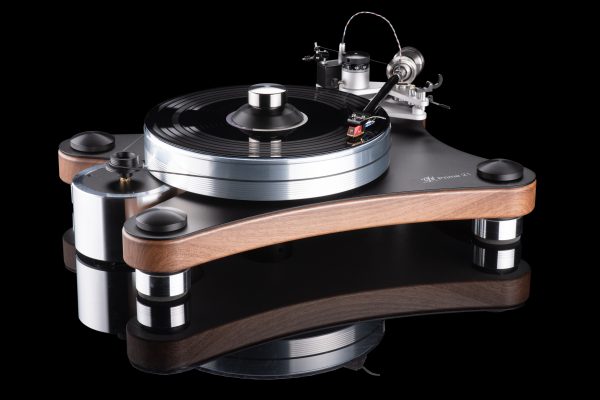
The resurgence in vinyl during the past decade has obviously been a blessing for turntable makers, allowing them to expand their range and enter new markets – but what if this hadn’t happened? And what if it won’t last? Your thoughts…
I think the big companies like Technics/Panasonic need to fire their accountants because they are the ones who drive the direction and goals of their company. I think “Vinyl is Coming Back” has become a BS marketing mantra that doesn’t actually exist besides trying to get people excited into buying something.
That might sound harsh but here is why – I have in my office an article from the New York Times that talks about the “Vinyl Comeback”… that article is from 1995. I keep that in my office where I can see it as a reminder to never worry about what others are doing or saying, worry about yourself and how you can make yourself as a person and company better.
In another instance, I was on an audio panel and I was surprised with a question where I was asked, “what was it like growing up in a household in a dying industry?” We never slowed down; vinyl never went away and as a child growing up, I never had concerns about my parent’s company. The pie might have gotten smaller at times but since we stayed, we had a larger portion of that pie. I mention Technics because they see the dollars, flow charts, and numbers before the listeners. Companies like them can be in our industry one decade, and then totally leave the next decade. For us, this past decade was no different than 1995 or any other decade. We just try to keep getting better at what we are doing.
When the CD player first came out, my mom and dad left their day jobs to give VPI their full attention. To quote from the VPI Book:
Harry was asked, “What are you going to do when you are out of business next year?”
Harry smiled and said, “I’m just going to keep building turntables.”
Whether it all lasts or not, VPI will keep building turntables and loving sharing music!
There was a point, eight years ago, when VPI was at the crossroads, and you made the decision to take over the reins – do you regret this decision, and how have you changed the way things are done at the company?
I can’t imagine my life without VPI. I did everything I could growing up to run away from my family business. My parents did the right thing. They let me follow my own dreams and become an accomplished person who could stand on his own. I was a high school teacher and college professor in technology (web design, animation, and CAD/3D modelling). In addition, I was an accomplished competitive martial artist who had dreams of having my school.
When life changed, I changed the whole direction of my life and feel like everything I accomplished helped prepare me for VPI. I regretted leaving the classroom and also leaving behind my love of martial arts. However, I found a new classroom in educating people in the audio world about turntables and the love of music. Also, in this past year found my way back onto the martial arts floor.
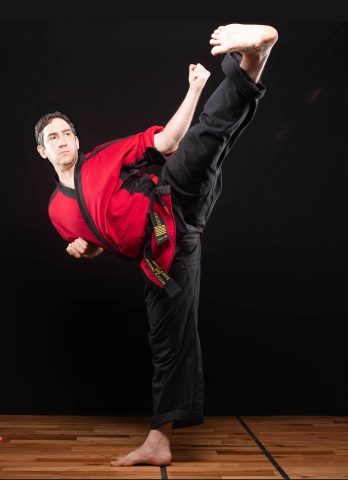
My major way of changing the company was coming into it with the mindset of being a teacher. I want to help make our products and all two-channel products easier to understand and not as intimidating. I want the users, like my students, to get excited about what they are doing and want to learn and become a greater part of the listening experience. I have always brought improved manuals, videos, and made my best effort to have a better line of communication between the customer and the VPI team. A lot of progress and success comes in with education and communication.
What is the whole process in coming up with a new product – who lays down the concept and groundwork?
Actually, the problem is we have too many ideas! Harry in his retirement is constantly comping up with ideas and I’m constantly trying to make sure we stay ahead of the curve in technology. For example, at the moment VPI has the most advanced and accurate direct-drive motor in the world. I won’t say the “best” (though I like to think it is the best) but it is the most current. Every direct-drive motor being used in our friendly competition is till top notch but older generation. Again, that’s what happens when progress is led by accountants and shareholders. What focuses Harry and myself is asking the question on what the idea serves. Is it because of our own ego of wanting to make it or is it because the user could benefit from it in some way?
For example, the development of our “Universal Arm Pod” which is about to be released was born from my dad wanting to mess with different types of tonearms at different lengths. At the time when we first created it, he wanted to mount it with a direct-drive motor but we didn’t have a product that could handle it, so he grabbed a motor pod, machined out a mounting plate, and threw a tonearm on it and had a working prototype. When a prototype happens, then we figure out where it fits in the VPI universe. Is it a high-end product, an entry-level, a complete product, an accessory… how can it HELP the user? Then we bring it to the machine shop, general 3D models and virtual simulations as well as machine a more proper prototype. If the product still stands up to the need and potential demand, we than make 3-5 “production prototypes” and then we beat the heck out of them and document every step of the way. Overall it is a fun father-son experience that has led to a lot of fantastic projects.
What is the extent of Harry’s involvement in the company now?
He is still very much involved. Harry spends more time in the VPI House working on different projects, but he is part of prototyping, research and development, and always good to help out with any legacy VPI products. He also has loved joining me for VPI Zoom and live stream events, although he seems to have less of a verbal filter everyday!
You have a US$1,750 MC cartridge, Shyla, coming out soon, for which you partnered with Audio-Technica. Tell us more, and why Audio-Technica?
This was an exciting experience and project all around. For years we have wanted to have our own VPI-branded cartridge and recently had a lot of musical success working with Audio-Technica. Their cartridges had a sound signature that we appreciated at a fantastic price. When we opened the conversation with former Audio-Technica rep Bill Poteet, he was more than happy to help us make it happen.
Audio-Technica was the first company to actually listen and follow what Harry wanted to accomplish with the cartridge. Having a cartridge that was detailed while still warm but focused on the voicing of the midrange/human voice. We love when the midrange sounds right and natural. That is achieved with the Shyla cartridge which has the obvious name of being named after my daughter Shyla who, like the cartridge, is a small package that has made a huge impact!
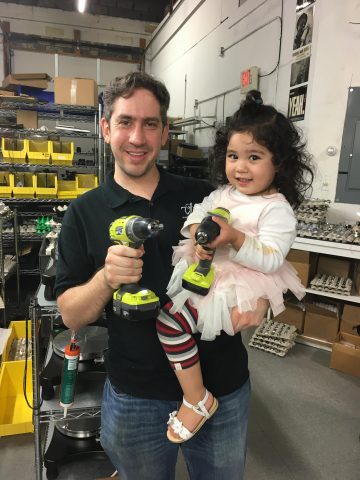
What makes better business for VPI, the entry, mid or high-end turntables? What would you focus on, now that you’ve had an in-depth feel of the overall vinyl market.
Midrange has always been our favourite spot mainly because we have always valued the idea of “bang for the buck”. While I’m proud of our HW-40 and Vanquish turntables, I have always felt more accomplished when our Prime Scout, or Prime stands up to and sonically out performs products that are three times its price point.
First, all high-end products are severely overpriced. With VPI, we actually follow the rule of manufacturing where our numbers and calculation are real-world numbers. There are too many companies putting out products with ridicules price points that make no sense on a manufacturing level. When we see those outlandish price points there can only be one of two conclusions, they are either stupid or they are criminals. At VPI, our midrange line, the “Performance” or “Prime Series”, is made to tap into that super high-end sound while still being an attainable price point that has real numbers to back it up.
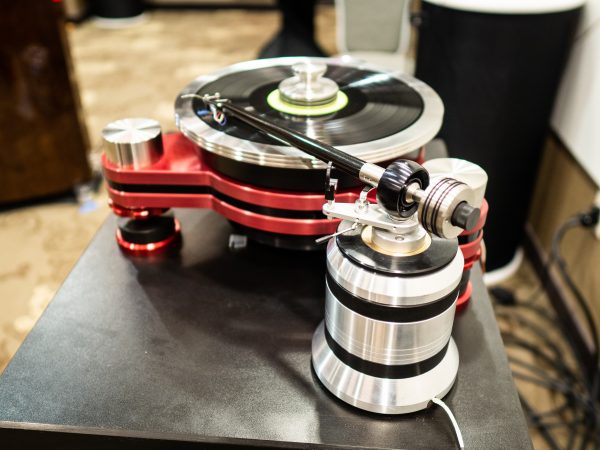
The Vanquish Magnetic Direct Drive turntable – what the situation now, has it been released?
Yes, though it was a false start because of Covid-19. The initial launch was last year to announce its existence with the first production model being released during Munich. We know what happened there! However, with the delays of Covid-19 aside, we have recently taken the order and started the build for the first actual Vanquish order. The Vanquish is available on its own as just the turntable (US$80,000), the stand (US$50,000), and with the phono (US$20,000). Though there are extended delays on the phono at the moment due to Covid-19, we project everything to be back on track for 2021.
Looking at the immediate future, are there plans for any new product from VPI in 2021?
The main plan is to roll out the Prime 21 and continue our direct-drive technology. We also target to finally launch our new speed controller which was suppose to happen this past year as well as the return of our phono stage (though undecided on if we will go with the old name or re-brand it under a different title). Untimely, our main goal is to keep VPI products and upgrades available for all VPI customers.
There’s been some talk that VPI might revive the Classic turntable in some form… what are your thoughts?
Absolutely!!!!! The major reason for the Classic to be removed was part of the whole “reset” of the VPI company when I took over and shifted the product line to having more parts and like components.
I had to (in some cases temporarily) kill all off my dad’s old products because while they all had VPI top-level specs, there was a lot of inconsistency in the parts. The launching of the Prime and transition into the Prime series was to have turntables that were unchanging with all like parts, for a higher level of quality and faster delivery of VPI products.
The Classic was part of that but is still a staple in our brand Identity as a company. People always love the Classics… especially a Cliffwood Classic!
- All photos courtesy of VPI Industries
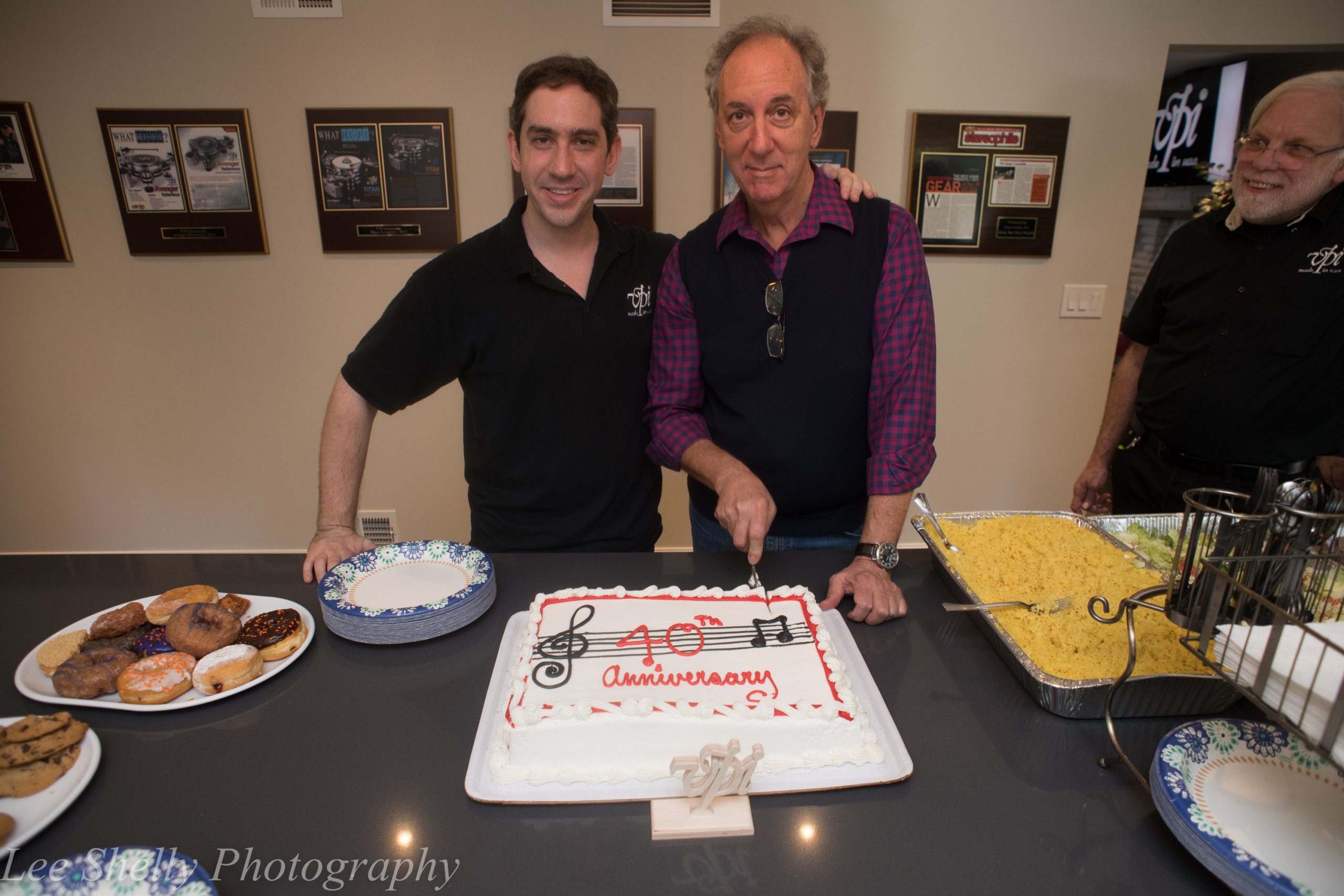





” with the first ever phono cartridge bearing its name”. VPI has had a number of phono cartridges over the years bearing their name.